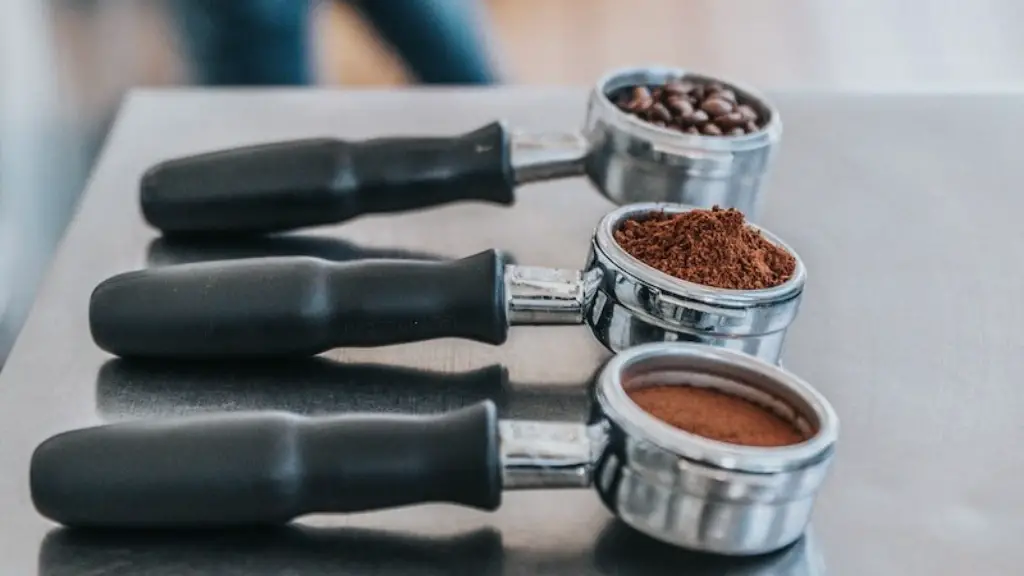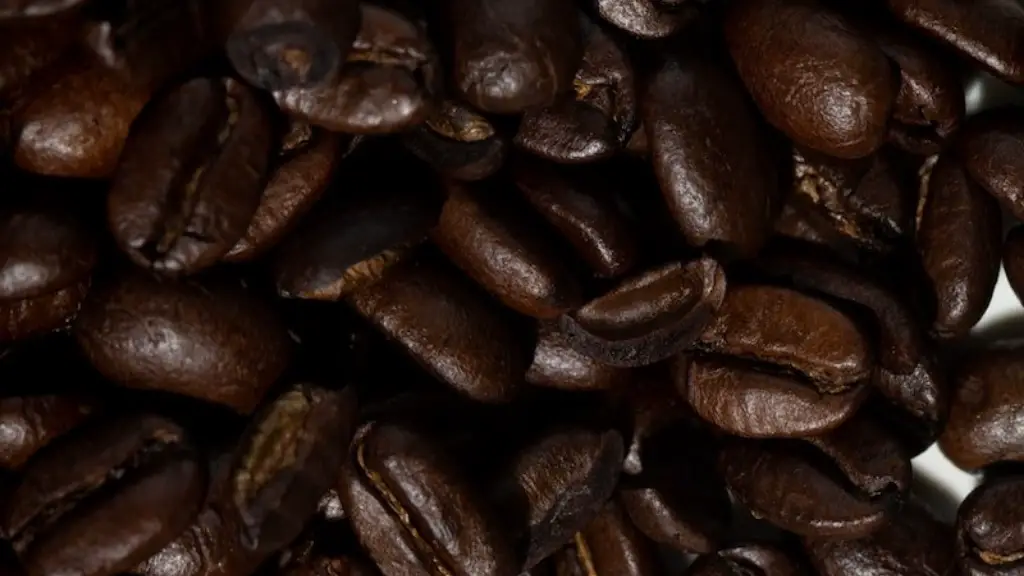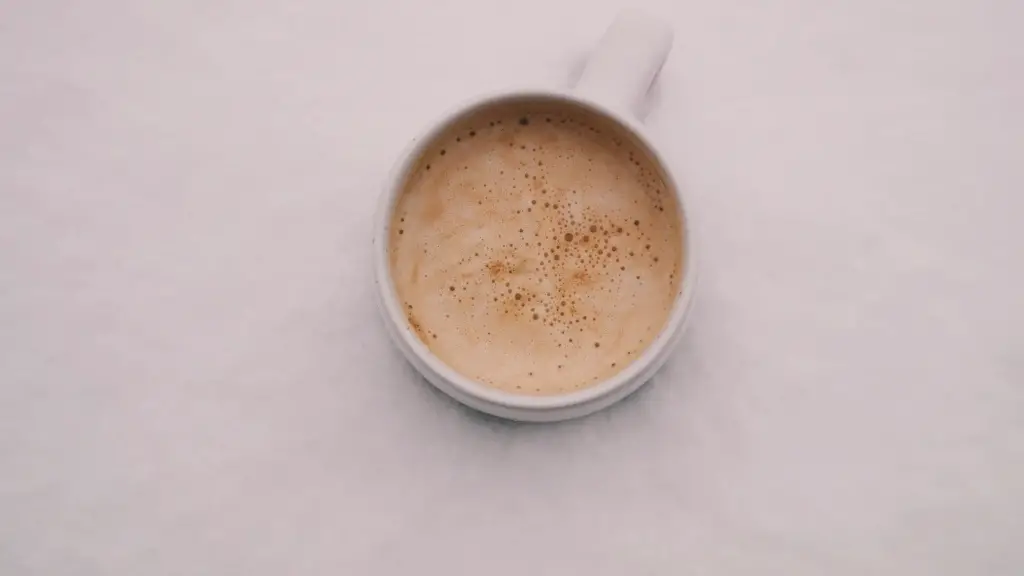Millions of people around the world rely on coffee for their daily energy and wellness. This powerful stimulant is enjoyed by many, especially those working long days, night-shifts, or who have active lifestyles. But what about when one is undergoing chemotherapy? Can somebody in such a vital medical process continue to drink coffee?
The answer to this question is not as simple as a yes or no statement. Coffee consumption needs to be managed carefully throughout one’s chemotherapy regimen. This is because the cycle of chemotherapy treatment has various side effects and can be physically demanding and taxing on the body’s energy reserves. Physiological changes like fatigue and dehydration can cause suddenweakness and decrease in energy reserves. It is important to understand the impact of coffee in such situations before deciding to drink it or not.
When consumed in moderation in the early chemotherapy stages, coffee can be beneficial for patients. Moderate intake of coffee during chemotherapy can help reduce fatigue, provide increased physical and mental alertness, and help to combat the nausea that can be brought on by the chemo treatments.
According to research conducted by the European Institute of Oncology, studies have shown that coffee not only helps reduce inflammation and cancer related pain, but can also help reduce the risk of certain cancers.
The key takeaway for patients undergoing chemotherapy is to pay attention to their body’s response toward coffee. While moderate intake of coffee during chemotherapy can provide a much-needed energy boost, too much can have adverse health effects like high blood pressure and also worsen dehydration.
However, when it comes to caffeine sensitivity, it is important to note that each person is a little different, and one should assess their body’s reaction after consuming coffee. Coffee should be consumed in moderation (less than two cups of coffee per day) as more may have a negative impact. If a patient notices negative side-effects after drinking coffee during chemotherapy, it is best to stop drinking coffee and speak to their doctor about any other treatments that can help eliminate fatigue or provide an energy boost.
The Impact Of Caffeine On The Digestive System
The overconsumption of caffeine during chemotherapy can lead to various side-effects such as irritable bowels, cramping, bloating, and diarrhea. Caffeine can also reduce the amount of water in the body, which can further aggravate symptoms of dehydration. All of these factors can interfere with an individual’s digestion and weaken their immune system.
Coffee can also cause changes in blood sugar levels, leading to fluctuating energy levels, lethargy and confusion. High levels of caffeine intake during chemotherapy can also cause sleep disturbances, which can further complicate the healing process. It is essential to maintain a healthy and balanced diet during chemotherapy, and to avoid overloading the body with caffeine.
It is important to understand that the human body has a battle going on between trying to maintain its homeostatic balance and chemo treatments, which work to destroy cancer cells. This means that heavy consumption of coffee can have an adverse effect on the body’s ability to maintain its homeostatic balance. Coffee should and can be consumed during chemotherapy, but in moderation to ensure that the body maintains its homeostatic balance and to reduce any negative side-effects.
Research & Studies
Coffee consumption and its effects on people who are undergoing chemotherapy treatment has been studied and analyzed. Chair of the Department of Radiation Oncology at the Icahn School of Medicine at Mount Sinai, Dr. Elihu Estey, has conducted various studies on the effects of coffee on people who are undergoing chemo treatments.
In his research, he finds that people who have undergone chemotherapy treatments often experience immense fatigue, so he recommends moderate consumption of coffee to increase energy levels, alertness, and reduce the severity of their chemo-related symptoms. He praises the therapeutic benefits of moderate caffeine consumption, but also notes that it is important to be particularly mindful of the effects that caffeine can have on the body while one is undergoing chemotherapy.
Dr. Estey emphasizes that everybody’s body is different in terms of how it responds to coffee, so it is important to take note of the body’s reaction to the caffeine intake. If it works well for the person, then it is okay to continue moderate consumption. If changes in sensory perceptions, nausea, headaches, or other symptoms persist for too long, then it is advisable to stop drinking coffee and speak to one’s doctor about alternatives.
Alternatives To Coffee
If one decides it is best to stop drinking coffee during chemotherapy, it’s important to know that there are alternatives to caffeine. One can substitute coffee for green or herbal tea, which provide antioxidants to help fight cancer cells and reduce the severity of cancer-related treatments. Additionally, there are various natural energy drinks like Kombucha, which are packed with minerals, vitamins, and probiotics. This can help one sustain their energy levels, reduce fatigue, and maintain their overall health during chemotherapy.
Another option is to incorporate foods that are a source of natural energy into one’s diet. Foods such as oatmeal, bananas, green vegetables, and nuts can help maintain energys levels throughout the day. All options should be discussed with one’s doctor to make sure they are safe during the course of one’s chemotherapy.
Management Of Pain & Other Symptoms
It is important to remember that nausea, headaches, and other symptoms that can be caused by coffee can be managed by taking supplements and medication. Additionally, pain can also be managed by relaxation techniques, yoga, or gentle stretching exercises.
Practices like meditation and deep breathing have been known to have a tremendous healing effect on the entire body, reducing the severity of pain, anxiety, and stress that are associated with chemotherapy treatments.
Research conducted by the Institute of Oncology in Milan 2003 shows that deep breathing and relaxation techniques help to reduce both physical and mental stress amongst people who are undergoing chemotherapy treatments.
The Bottom Line
Ultimately, it is up to the patient to decide how much coffee they want to consume during chemotherapy, but it should be done in moderation. It is important to note how the body responds to coffee and to practice moderation throughout one’s chemotherapy regimen to ensure that the most beneficial advantage is gained.
It is also important to understand that individuals react differently to coffee and if one notices any negative side-effects then it is advisable to consult a doctor. Alternatives to coffee can help maintain energy as well as help manage pain and other symptoms.




